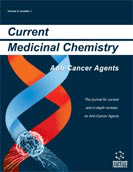Abstract
Although it has been widely known that extracellular signal-regulated kinase (ERK) pathway stimulates cell growth and have a protective effect from cell death, recent findings propose pro-apoptotic action of ERK phosphorylation. Since it was found that Vitamin K3 (VK3) or its analog was a potent growth inhibitor and inducer for ERK phosphorylation through specific pathway in cancer cell line, the critical role of ERK phosphorylation in growth inhibitory actions can be discussed. VK3 induced receptor tyrosine phosphorylation and occurred at growth inhibitory concentrations. The phosphorylation of growth factor receptor by VK3 was indicated to be functional, since these were connected with growth factor receptor-bound protein 2 (Grb2) and SOS1. The growth factor stimulated to induce cyclin D1 protein and increase DNA contents. In addition, ERK inhibitor antagonized increase of cyclin D1, suggesting that ERK phosphorylation by growth factor might play an essential role for cell growth. By contrast, ERK phosphorylation by VK3 was more prolonged and intense than the signal induced by growth factors and the antagonize ERK phosphorylation protected from growth inhibition by VK3. The additional and extra ERK spot by VK3, compared with those obtained from growth factor, was detected on two dimensional gels, and this was completely and selectively antagonized by ERK inhibitor. Therefore, the overexpressed ERK phosphorylation was suggested to originate from the additional spot, which played a critical role in growth inhibitory action, despite ERK phosphorylation by growth factor had an essential association with cell growth. The new approach to consider the signal transduction can be one of the most favorite strategies for cancer therapy in the future.
Keywords: extracellular signal regulated kinase, cancer therapy, signal transduction, anti cancer drug, erk
 2
2

















